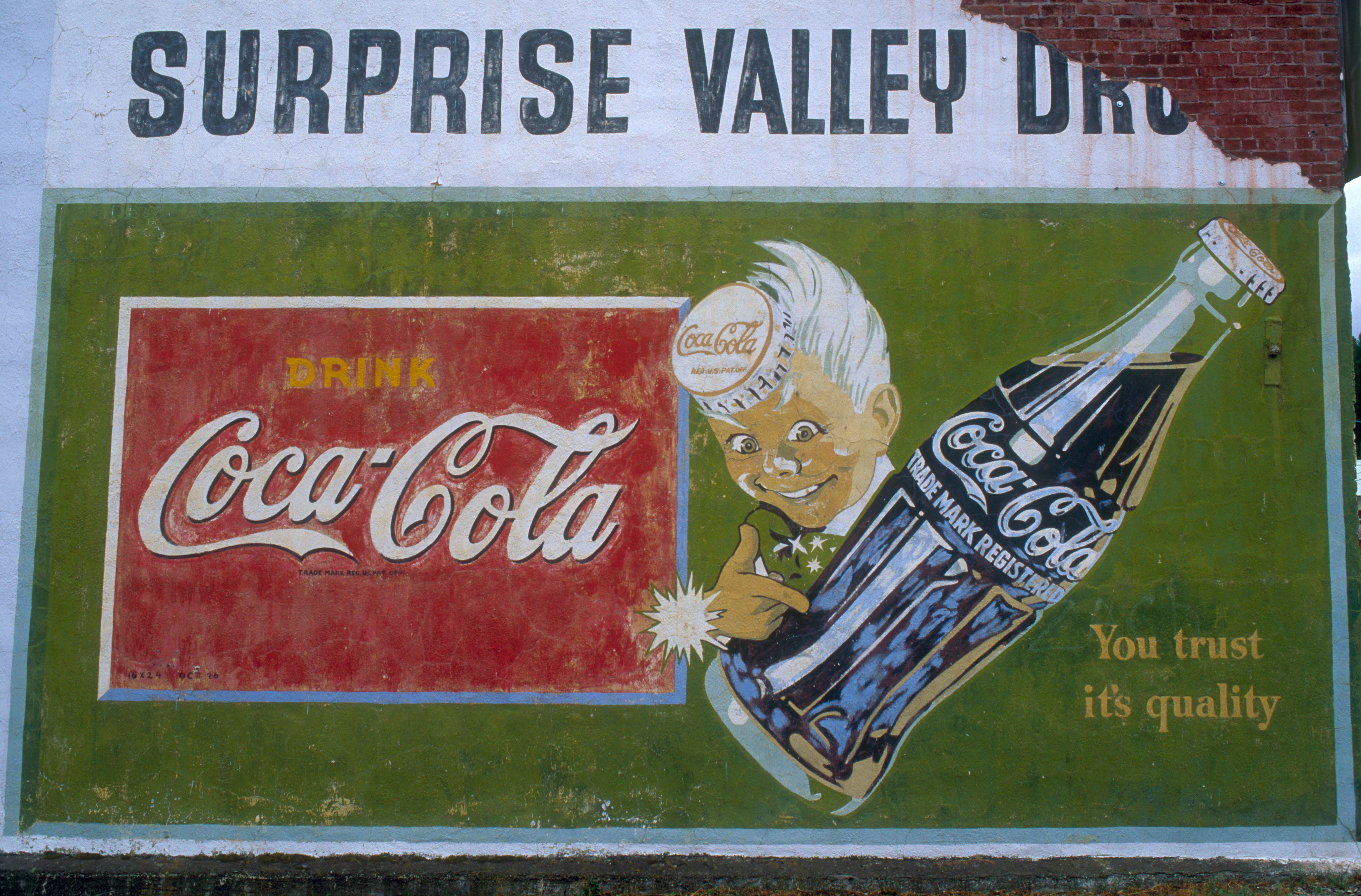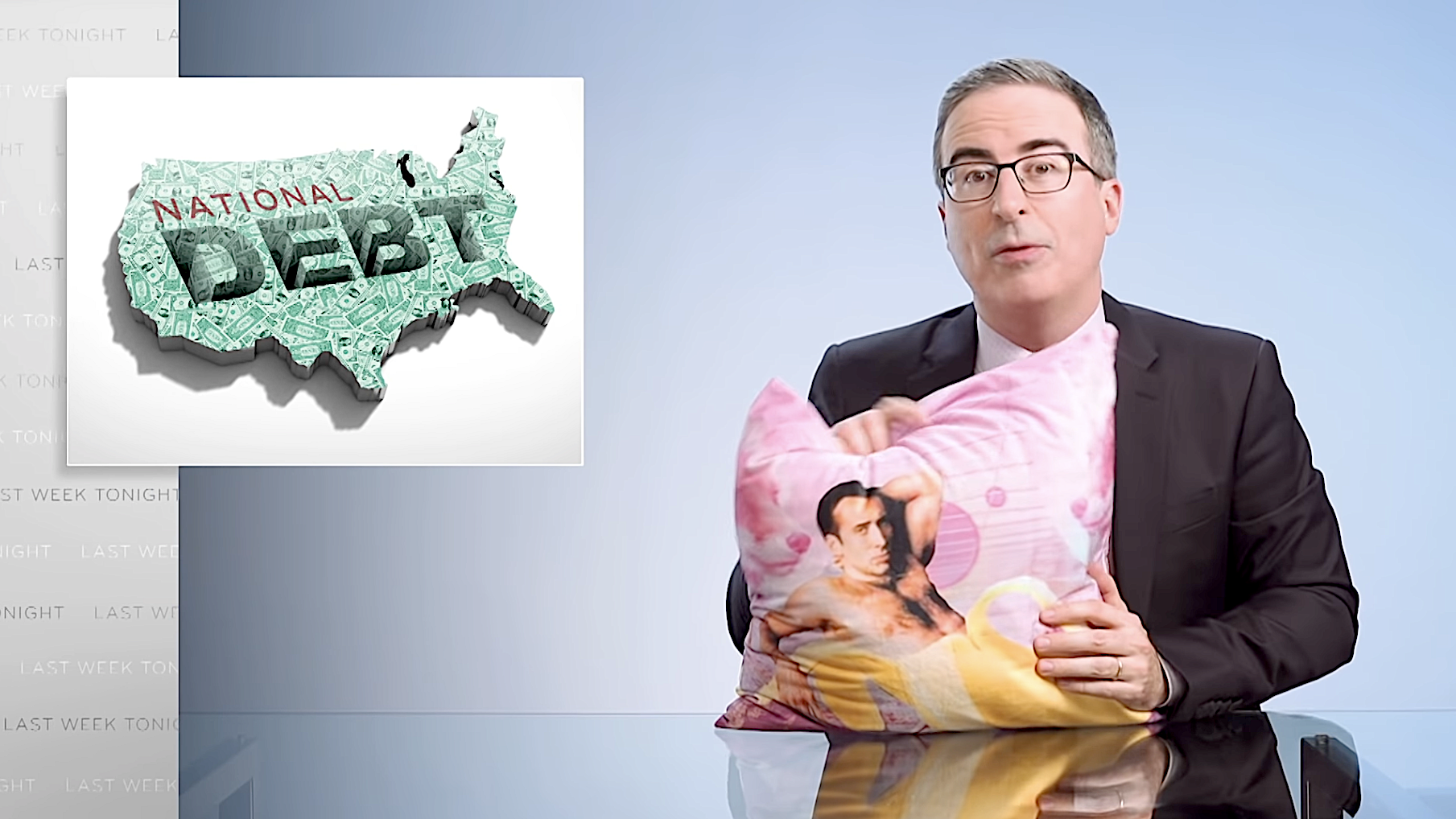Corporate America isn't woke
Don't look to Apple or J.P. Morgan for morals


A free daily email with the biggest news stories of the day – and the best features from TheWeek.com
You are now subscribed
Your newsletter sign-up was successful
Mocking neoliberalism is a vicious, unsporting pastime, like bear baiting or fishing with dynamite. This is not because our woke capitalist elites and their echo chambers in the media don't deserve ridicule, but because they invite it so heedlessly.
A case in point is the routine breathless enthusiasm with which corporations and their leaders are praised for making vaguely woke gestures. My favorite example is BuzzFeed's immortal classic, "46 beautiful rainbow brand logos celebrating marriage equality." But soberer voices are just as guilty. It is equally ridiculous for The New York Times to single out the chief executives of Walmart, JPMorgan Chase, PepsiCo, and Apple for praise. We should not be looking to corporate America for moral instruction or making exemplars of its leaders or heaping approbation upon their bland, cynical consultant-designed utterances.
Talk, after all, is cheap, and the gap between what MBA-educated CEOs say and what the vast enterprises under their command actually do is yawningly wide. Walmart, a monstrous parasite of a corporation that ruthlessly destroys competitors, pays starvation wages to its employees, and thinks nothing of leaving a community bloodless and broken at the whims of computer algorithms, has settled numerous lawsuits related to racial discrimination in recent years. But, hey, the CEO just called for "healing" in Charlottesville.
The Week
Escape your echo chamber. Get the facts behind the news, plus analysis from multiple perspectives.

Sign up for The Week's Free Newsletters
From our morning news briefing to a weekly Good News Newsletter, get the best of The Week delivered directly to your inbox.
From our morning news briefing to a weekly Good News Newsletter, get the best of The Week delivered directly to your inbox.
"The equal treatment of all people is one of our nation's bedrock principles," says Jamie Dimon of JPMorgan Chase. Nice. His company, one of the most reckless contributors to the crash of 2008, just paid out $55 million following an investigation that alleged the bank had systematically discriminated against thousands of Hispanic and African-American mortgage holders by charging higher interest rates.
Likewise Apple's Tim Cook tells us that he is against racism. I believe it. Good on him. Cook also just received a $90 million bonus on top of his salary and other perks for his role in the development of the iPhone 8, a luxury product. He is the CEO of a corporation that has made profits on a scale hitherto unimaginable in human history by exploiting cheap labor in a poor country ruled by tyrants whose authority is perpetuated in no small part thanks to Apple's own compliance in its silencing of dissent and hiring the smartest lawyers in the world to make their tax burden negligible. Want to help black people in America, Mr. Cook? Consider opening a factory in Flint.
To welcome this mouthing along is to participate in the fiction that opposing racism means nothing more than disavowing — or even just failing to exhibit — mere personal prejudice. Maybe the welfare reform of the 1990s was not racist, even though it disproportionately affected black people and was driven by inarguably racist caricatures, because President Clinton and the Republican leadership in Congress don't hate black people. But it has been a long time since we pretended that actions should not speak louder than words.
There are any number of explanations for corporate wokeness. The most common one on the right is that it is blatantly cynical — no one at PepsiCo or the NCAA actually cares one way or the other about same-sex marriage or bathroom bills. There is probably some element of truth to this. It is also sometimes suggested that the priorities of CEOs are simply reflective of their class; a Harvard MBA is a Harvard MBA whether he's running a bank or a non-profit or teaching or running for political office. But neither of these seems to me totally satisfactory.
A free daily email with the biggest news stories of the day – and the best features from TheWeek.com
The truth is that racial prejudice of the old-fashioned variety on display in Charlottesville is one of the many bonds and gestures being pushed aside by the seemingly inexorable force of capital itself. In this case it is to the good, and no one should mourn the passing of white supremacy when it finally comes. But the dynamism of global capitalism does not — cannot — discriminate between the crudest atavistic impulses and the sublime beauty of the immutable tenets of the Christian religion or the dictates of natural justice or the quiet joys of traditional family life or any quaint little attachment or aspiration — religious, political, social, aesthetic — that is not straightforwardly reconcilable with its omnidirectional process of disruption and accumulation.
In other words, the blind corrosive force that has made wage slaves of hundreds of millions the world round and reduced the splendors of creation to "an enormous pile of filth," as Pope Francis put it in his encyclical Laudato si', is only incidentally anti-Nazi. Its true nature is anti-everything that is not commodifiable or exploitable or packageable or otherwise capable of being heaped up and profited from. This is why capitalism was necessary for Marx: to destroy all vestiges of that vast array of convictions, practices, feelings, and objects of endearment that he dismissed as reactionary ideology.
Because I am not a Marxist, scientific or otherwise, I do not believe that global technocratic neoliberalism is preparing the way for inevitable global socialism. What comes after capitalism will be more capitalism, stripped finally of all the cast-out remnants of human veneration.
Applauding a grim relentless process of spoliation is not something I'm prepared to get behind even when I happen to agree with every syllable of some marketing consultant's workshopped 140-character statement.
Matthew Walther is a national correspondent at The Week. His work has also appeared in First Things, The Spectator of London, The Catholic Herald, National Review, and other publications. He is currently writing a biography of the Rev. Montague Summers. He is also a Robert Novak Journalism Fellow.
-
 Political cartoons for February 3
Political cartoons for February 3Cartoons Tuesday’s political cartoons include empty seats, the worst of the worst of bunnies, and more
-
 Trump’s Kennedy Center closure plan draws ire
Trump’s Kennedy Center closure plan draws ireSpeed Read Trump said he will close the center for two years for ‘renovations’
-
 Trump's ‘weaponization czar’ demoted at DOJ
Trump's ‘weaponization czar’ demoted at DOJSpeed Read Ed Martin lost his title as assistant attorney general
-
 Late night hosts joke about Trump's forced exodus from Facebook to blog
Late night hosts joke about Trump's forced exodus from Facebook to blogSpeed Read
-
 Fox News admits Biden doesn't actually want to cancel meat. Late night hosts pounce anyway.
Fox News admits Biden doesn't actually want to cancel meat. Late night hosts pounce anyway.Speed Read
-
 Manhattan D.A. will stop prosecuting sex workers, not their clients, pimps, or sex traffickers
Manhattan D.A. will stop prosecuting sex workers, not their clients, pimps, or sex traffickersSpeed Read
-
 John Oliver explains personal bankruptcy, how credit card lobbyists and lawyers make it much worse
John Oliver explains personal bankruptcy, how credit card lobbyists and lawyers make it much worseSpeed Read
-
 John Oliver explores problems with U.S. nursing homes and long-term care, suggests you pay attention
John Oliver explores problems with U.S. nursing homes and long-term care, suggests you pay attentionSpeed Read
-
 John Oliver tries to explain whether you should worry about the enormous U.S. national debt
John Oliver tries to explain whether you should worry about the enormous U.S. national debtSpeed Read
-
 Late night hosts laugh at the giant ship blocking the Suez Canal, chide Fox News for fake Kamala Harris scandal
Late night hosts laugh at the giant ship blocking the Suez Canal, chide Fox News for fake Kamala Harris scandalSpeed Read
-
 Utah governor signs bill requiring porn blocking on all new smartphones and tablets
Utah governor signs bill requiring porn blocking on all new smartphones and tabletsSpeed Read
